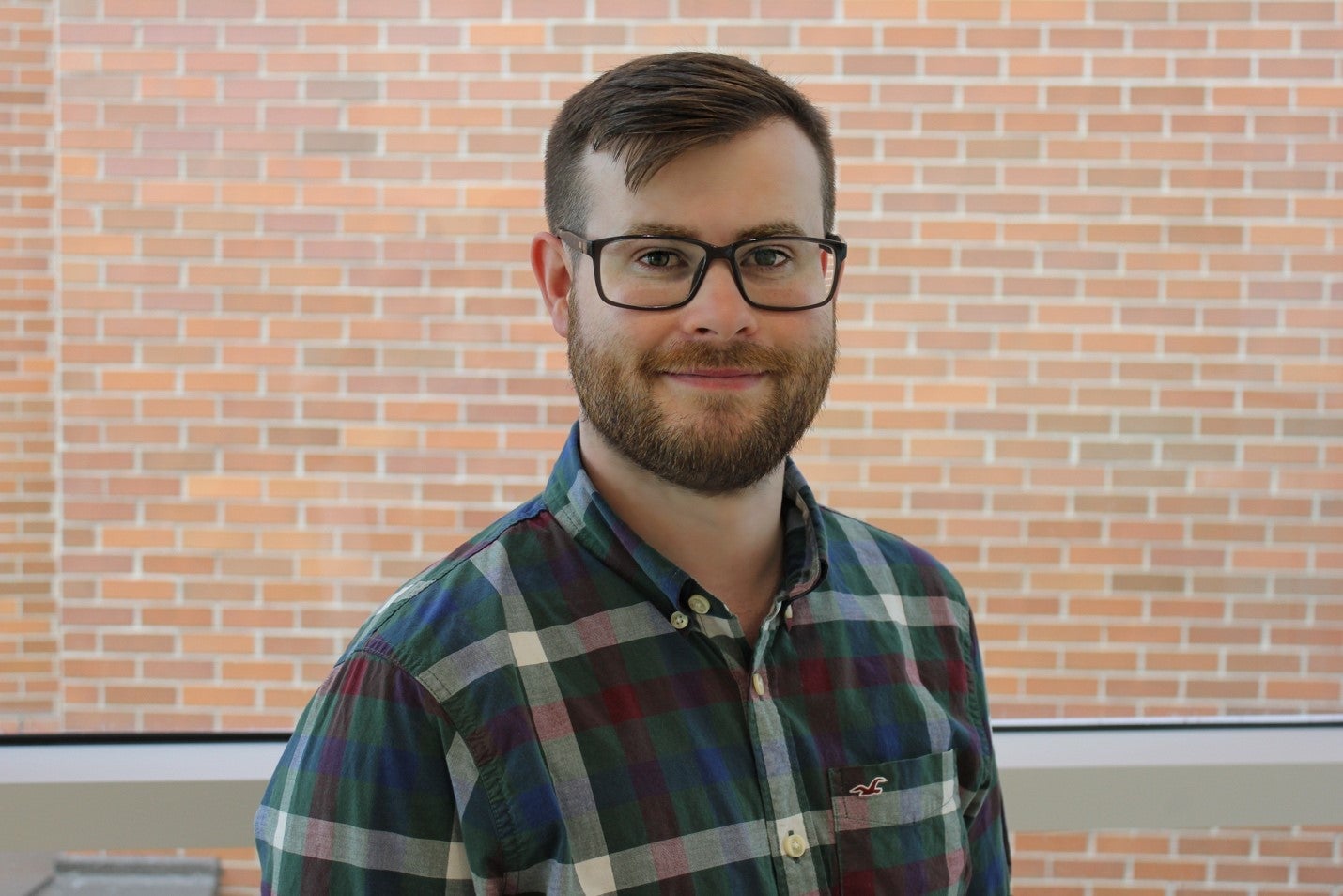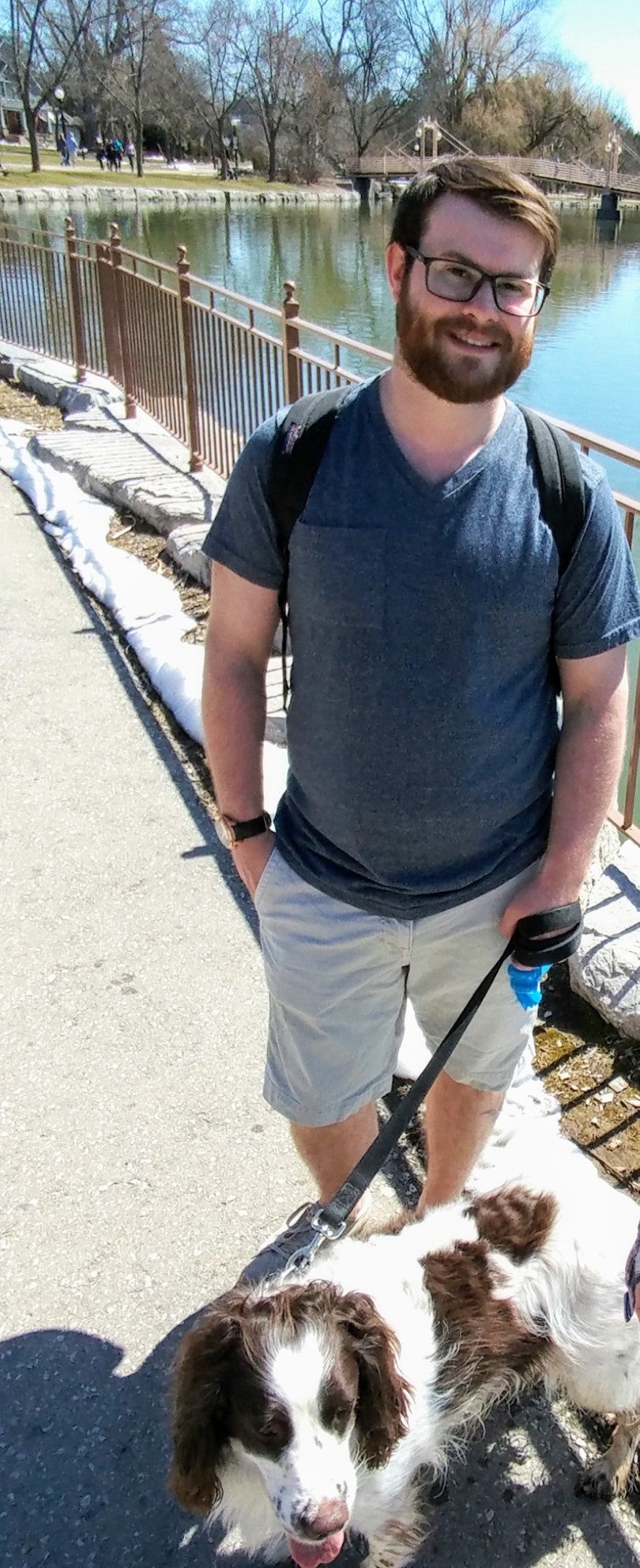Josh Butt, Rx2019 - Kitchener
Navigating
the
region


There were a number of advantages having been placed in the Kitchener/Waterloo region – the biggest being that I did not have the added stress of finding somewhere to rent in an unfamiliar city. For many in the Kitchener/Waterloo region, renting was relatively easier than in other regions as we either already had a place to live or were familiar with the best places to rent/sublet near the Pharmacy School. Since I lived in Kitchener since the start of the program, I was also comfortable with driving and using public transit in the region. The ION light rail rapid transit system also began operating while I was on rotations, which made travelling along this route much quicker. Having completed all of my previous co-op rotations in the surrounding area, I was already familiar with most of the potential placement locations and I was aware of other healthcare services available in the region, which made patient referrals much easier.
The Kitchener/Waterloo region also has a lot to offer to help maintain a good work-life balance. There are a number of parks in the area such as Victoria Park, Waterloo Park, and Kiwanis Park, which are great places for walking/running. The Walter Bean Grand River Trail and the Elora Gorge Conservation Area were some of my favourite places to hike. The region also has countless restaurants to satisfy your inner foodie — The Lancaster Smokehouse, Kinkaku Izakaya, TWH Social, Arabella Park Beer Bar, Slices Family Restaurant, and Bauer Kitchen are just a few of the many amazing places to eat. The St. Jacobs Farmer’s Market also offers great food and a wide selection of fresh and local produce, meats, cheeses, etc. The Kitchener/Waterloo area hosts a number of festivals as well, such as the Kitchener Ribfest and Craft Beer Show, Food Truck Festivals, and the Sunlife Financial Waterloo Busker Carnival – the City of Kitchener and City of Waterloo Events websites are a great resource to see everything happening in the region.
My Regional Clinical Coordinator (RCC) Bronwyn was a great support to have in the region. She was always very timely when responding to emails and was readily available if I had any questions/concerns regarding my practice sites. She regularly checked in with everyone in the region via email, site visits, or during events that she planned with us. Bronwyn encouraged us to attend information/networking sessions in the region such as CEs on harm reduction in primary care and the use of PrescribeIT and Clinical Connect in community pharmacy. Bronwyn also established a CE event with the Region of Waterloo Pharmacists’ Association that allowed us to provide education to practicing pharmacists. Finally, Bronwyn helped us celebrate the completion of our rotations with a year-end dinner.
 Practice
site descriptions
Practice
site descriptions

My first and most clinical rotation was working with a Clinical Consultant Pharmacist for Medical Pharmacies, who serviced a number of nursing and retirement homes within and outside of the Kitchener/Waterloo region. This rotation taught me a lot about the roles and responsibilities of pharmacies/pharmacists in the long-term care setting – something which I had previously had very little exposure to. Working with the consultant pharmacist, I was responsible for performing annual and quarterly medication reviews for every long-term care resident under his care. This involved reviewing each resident’s chart, including nursing notes, progress notes, lab values, etc., as well as communicating with the nurses responsible for the resident’s daily care. Once a thorough review was completed, any DTPs that were identified were communicated to the nursing staff and concisely summarized for the doctor’s review. Through these reviews, I gained a lot of experience interpreting lab values, performing renal dose adjustments, screening for drug interactions, managing pain, effectively communicating DTPs, and monitoring for improvement after DTPs were addressed. In addition to medication reviews, I was also tasked with auditing antipsychotic use in one of my main homes to identify potentially inappropriate antipsychotic use and come up with safer alternatives. Consultant pharmacists are also responsible for attending interdisciplinary meetings and providing education to long-term care staff on a variety of topics. As part of this rotation, I provided education regarding the use of naloxone and epinephrine in emergency situations. Overall, this rotation was a unique learning experience because the patient population was so different from what would be seen in a typical pharmacy setting. In the long-term care setting, many patients have very complex medical histories and there is a fine balance between treating to achieve quality vs. quantity of life.
My second rotation was with Shoppers Drug Mart, where I worked with a group of pharmacists, pharmacy technicians, and assistants. This was my first experience working for a Shoppers as well as working with a paperless system, so it was nice to get this exposure. Some of my main roles included prescription checking, medication counselling, OTC consults, and conducting medication reviews. Being located near one of the main malls in the city, there was a large number of younger customers who would approach the pharmacy counter with questions or looking for advice. This was a great opportunity for me to practice many of the skills developed during pharmacy school such as patient assessment using SCHOLAR HAMS, OTC product selection and counselling, and referring for further assessment. At this pharmacy, I was also given the opportunity to conduct a COPD/inhaler clinic where I could assess patients with COPD in order to optimize their medication regimens and inhaler technique. During this clinic, I identified a number of patients that required retraining on the proper use of their inhalers (e.g. loading of Respimat, aerochamber use, etc.), which really highlighted the importance of following up with patients when new medications are started and with every refill.
My final rotation was at Rexall, where I worked with a small team of pharmacists and pharmacy technicians. As this was my final rotation, my preceptor allowed me to work with more independence than some of my previous placements. This was a very rewarding experience as it gave me a better idea of what to expect once I am a licensed pharmacist all while still having the support of a more experienced pharmacist when needed. I was responsible for checking prescriptions and blister packs for technical and therapeutic appropriateness, identifying and managing DTPs, finding alternatives for back-ordered products, OTC consults, and medication reviews. Because I was performing almost all of the duties of a licensed pharmacist, it was a great chance to improve my time management and multitasking skills, documentation, and communication with prescribers. It helped me gain more confidence in my abilities to manage patients and practice as a pharmacist in general. This pharmacy had a large diabetic population, so I also had the opportunity to work with a foot care nurse to provide diabetes and foot care education.
The main and most useful resources that I used during rotations were the ones available through the School of Pharmacy Library. Lexicomp, UpToDate, RxTx, Natural Medicines, and RxFiles were my go-to resources. Pharmacy 5in5, DIRC (and other drug info hotlines), and the OPA and OCP websites were also very useful. Outside of electronic resources, having the support of your pharmacy team (more experienced pharmacists/technicians and your classmates) is invaluable.
Advice for future students
The best advice that I can give to future students is that rotations are what you make of them. You may not be 100% satisfied with your region or individual placements but they are each unique opportunities for you to learn something. Your rotation may not service a niche patient population or focus on an area that you are passionate about but try to be open and willing to learn. Never hesitate to ask questions that might benefit you in the future. Take every chance to refine your skills (i.e. OTC consults, prescription checking/counselling, injections, drug info, etc.). Rotations are intended to help you transition from being a student to being a pharmacist, so try to soak up as much knowledge as you can while you have the support of a more experienced pharmacist.